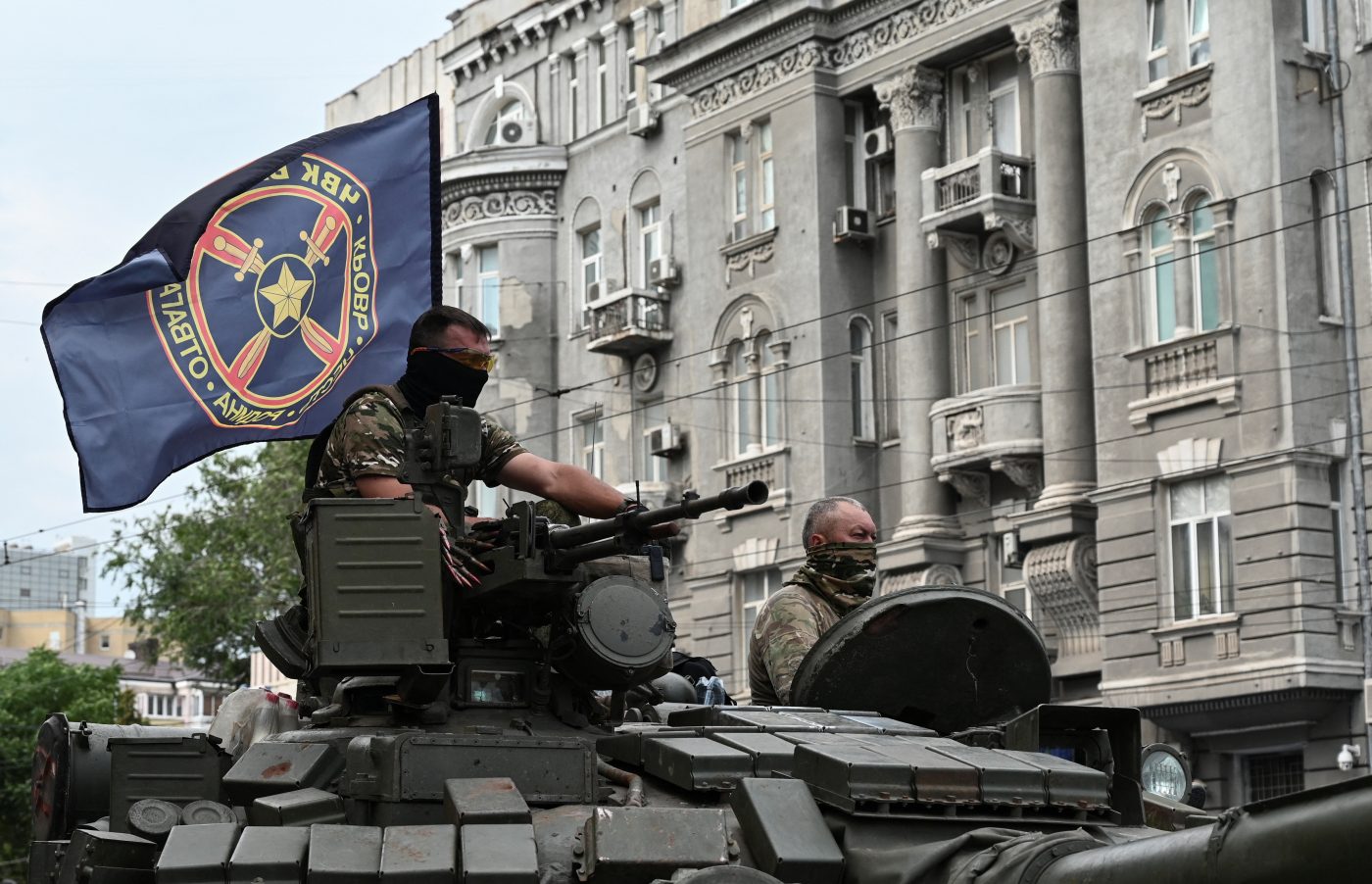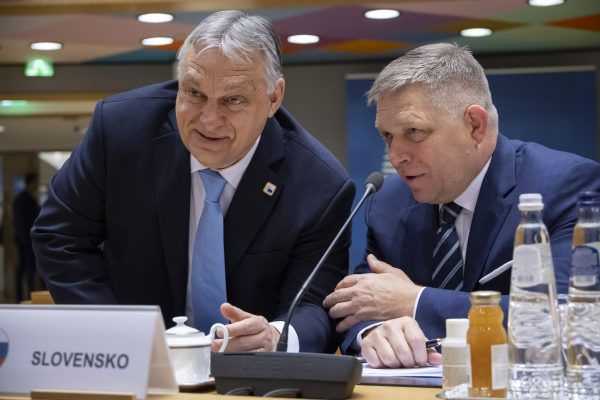The attempted mutiny by the Wagner private military company (PMC) officially concluded with a reconciliation between the parties on June 24. The rebel leader, Evgeny Prigozhin — who had previously declared a “crusade” on Moscow, which he termed the “March for Justice” — agreed to return units under his control to the frontlines. According to Russian media, he accepted an invitation from Aliaksandr Lukashenka and left for Belarus. Dmitry Peskov, the spokesperson for the Russian president, announced that the criminal case against Prigozhin would be dropped.
So all’s good? Not at all. While a full-scale civil war did not erupt, it is evident that Prigozhin, possibly unintentionally, inflicted significant damage on the Putin regime. Former US Special Representative for Ukraine Kurt Volker pointed out that the founder of the Wagner PMC debunked the key pillars of Russian propaganda regarding the causes of the war in Ukraine, and openly described the actual situation on the frontlines.
Experts also correctly point out that the Wagner mutiny exposed the glaring weakness of the Russian state to the world. “Prigozhin’s rebellion means that in future crises, Putin and his inner circle cannot assume that Russian soldiers will unquestioningly follow orders,” said Professor Stephen Sestanovich, at the Council on Foreign Relations.
Indeed, through his actions, Evgeny Prigozhin demonstrated that a well-armed field commander could easily breach the Russian border, seize strategic assets in a major regional center (Rostov-on-Don), and reach Moscow in less than a day. Regardless of whether this impunity was due to the incompetence of Russian special services or their covert support, it signifies that the state has lost its monopoly on violence and is no longer capable of effectively handling internal threats.
Furthermore, even official Russian media do not deny that Prigozhin’s associates were responsible for the destruction of as many as seven Russian helicopters and a transport aircraft, killing an unknown number of crew. However, the leader of the mutinous PMC faced no repercussions for these actions, and it took the intervention of a foreign leader to persuade him to make concessions.
In addition, Prigozhin’s rebellion put an end to the Kremlin’s attempts to alleviate growing anxiety among the Russian population (some 53% of people said they were anxious for themselves or those close to them, a sharp increase.) Just a few days before, Telegram channels loyal to the government, citing “sources close to the Kremlin,” reported that “state television has been advised to reduce the emotional intensity in its reports from the zone of the special military operation, focusing on the topic of rebuilding rather than escalation of the conflict and depiction of fierce battles.”
Independent investigative projects supported these claims, noting that regional governors have been instructed not to publish obituaries of residents who have died in the war (Some Western officials believe Russia’s dead and wounded now exceed 350,000.) Prigozhin’s words about huge losses at the front completely contradict this information policy.
Simultaneously, the authorities are attempting to curb rumors of a new wave of mobilization by emphasizing the “voluntary” nature of the army fighting in Ukraine. In practice, this translates to further criminalization of the armed forces. Toward the end of June, the State Duma passed a law exempting participants in the war with Ukraine from criminal liability for minor and moderately serious offenses, an apparent acknowledgment not only that a growing proportion of personnel have criminal predilections but also that they are likely to reoffend while in Ukraine.
Russian authorities have meanwhile initiated a campaign to encourage the return of emigrants, known as “relocants.” According to independent media reports, in 2022, the number of Russians emigrating to European Union (EU) countries bordering Russia reached 11,860 people, nearly double the average figure of the past decade. This number does not begin to encompass the much larger total of hundreds of thousands who have left for political reasons or to avoid military service. Among those who have gone are many young professionals with valuable skills, exacerbating the labor shortage in the Russian job market.
In late June, pro-government Telegram channels began to suggest that the Kremlin is interested in the public return of relocants. Promises of good job opportunities and media coverage featuring “stories of happy return” began to appear, with individuals expressing “repentance” and “condemnation of Russophobia.”
Speaker of the State Duma, Vyacheslav Volodin, also called on those who left to reconsider and return “while they still have the chance.” This stands in stark contrast to his previous statements in which he referred to new emigrants as “traitors.” Following suit, prominent Kremlin political scientist Sergey Markov also began urging the return of those who left.
These messages are very obviously damaged by the sight of open warfare among the country’s military and militias. The police state is only likely to become more repressive.
It is now clear that without a general mobilization, the Kremlin cannot reverse the situation on the front lines. Additionally, even loyal government sources acknowledge that promises of additional payments to contract soldiers are not being fulfilled, and “new stimulus measures are required.” However, these measures face financial constraints and entrepreneurs’ fatigue from constant financial demands.
The economy is under strain, the military struggles to recruit, open defiance has been shown in the most public of ways and the government appeared paralyzed by indecision.
Putin’s regime has been weakened by Russia’s war of aggression. But it retains the ability to do enormous damage, not least to Ukrainians, before it collapses completely.
Kseniya Kirillova is an analyst focused on Russian society, mentality, propaganda, and foreign policy. The author of numerous articles for the Jamestown Foundation, she has also written for the Atlantic Council, Stratfor, and others.
Europe’s Edge is CEPA’s online journal covering critical topics on the foreign policy docket across Europe and North America. All opinions are those of the author and do not necessarily represent the position or views of the institutions they represent or the Center for European Policy Analysis.





